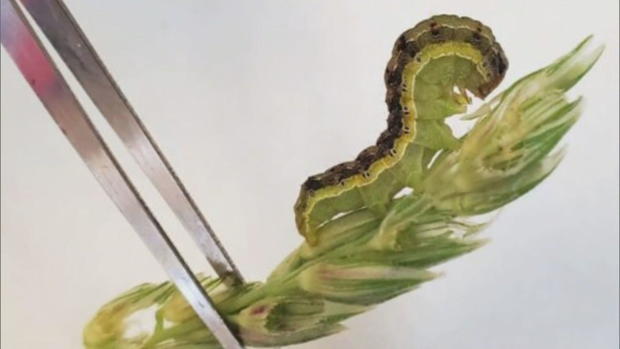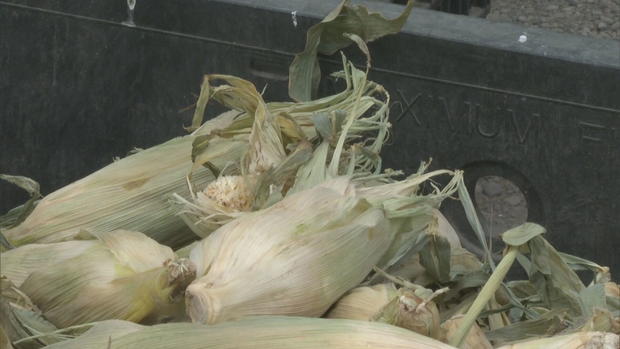Colorado State University researchers consider "STD" to help protect sweet corn from worms
Researchers are hoping corn earworms skipped health class in high school so they can curb their growth with a new idea after the insects became more resistant to the common insecticides farmers have used for decades... a virus, transmitted sexually across the population.
Adrian Card, a State Produce Specialist with CSU Extension explained that farmers on the Western Slope lost around half their sweet corn crop last year, in part due to the infestation of corn earworm, (which is actually a moth) and has been around farms in Colorado ever since they started growing the produce, but haven't had a big of an issue with the pest until now.
"At its maximum, about 2300 acres of sweet corn (was lost)," Card explained. "That resulted in $2.7 million in losses."
Why now? Card and fellow researchers believe it's in part due to a resistance the bugs have built up against how we would normally kill them, and the possibility the worms are now sticking around in Colorado when they used to just migrate here every year.
"With warmer weather, climate change, winters that are less severe, the insect is able to overwinter north of the 40th degrees latitude," Card said. "So we think that some of these insects, we're not certain, but we think that some of these populations do then originate in western Colorado instead of where many insects would move in from out of state, fly in the hit the air currents and move in that way."
So this "new, old" problem deserves a new solution to protect farmers and the produce we expect here in Colorado. That's where the "STD" that stops the bugs from having "viable offspring" comes in.
"We jokingly on this project, call it 'moths with STDs,' but it is a virus that has been amplified by a virologist and is beginning to be commercialized," Card said. "It's not approved by EPA for widespread use, but we have some narrow parameters in which we can use it on this project and the initial results have been promising."
Because of that, Colorado is now at the forefront of a possible solution that's bigger than just our fields of sweet corn in Olathe; the entire world is dealing with a stronger, more resilient corn earworm, and looking for a solution (within specific parameters.) Card believes producers are not interested in a few of the options they could present in order to curb the bug problem sooner rather than later.
"There is strong evidence that would suggest if we shifted to production of genetically modified sweet corn, we could do this with very little to no chemical insecticides," Card said, referencing an effect the corn can have on the worms to basically stop their stomachs from functioning.
But to do so would create genetically modified sweet corn, which Card believes big box stores and farmers alike are not especially interested in exploring.
"it's more of a perception issue in the marketplace, in my estimation," Card said, referencing the lack of data that shows GMO crops cause health issues.
Still, with a "softer" approach to curbing corn earworm populations in trials, along with six other insecticides that Card believes could be used in conjunction with the virus, he believes there could be substantial recovery for Colorado farmers in the next few years.











